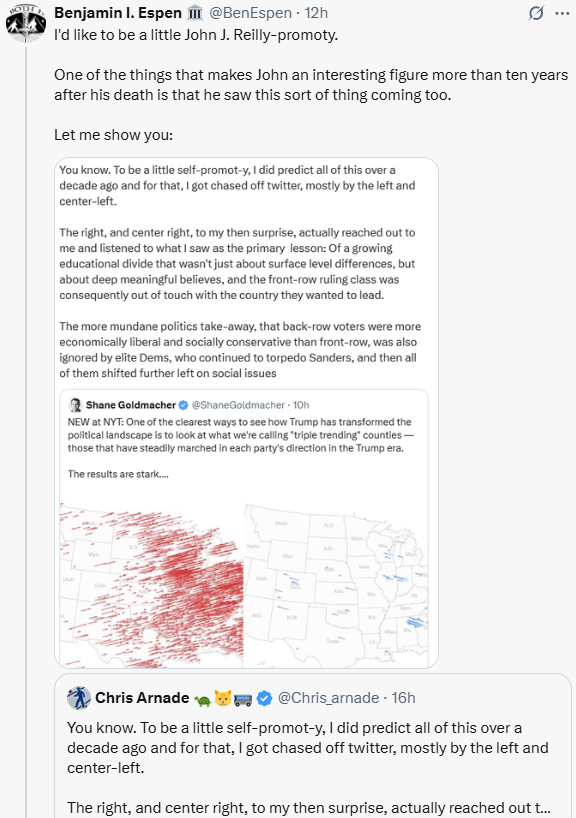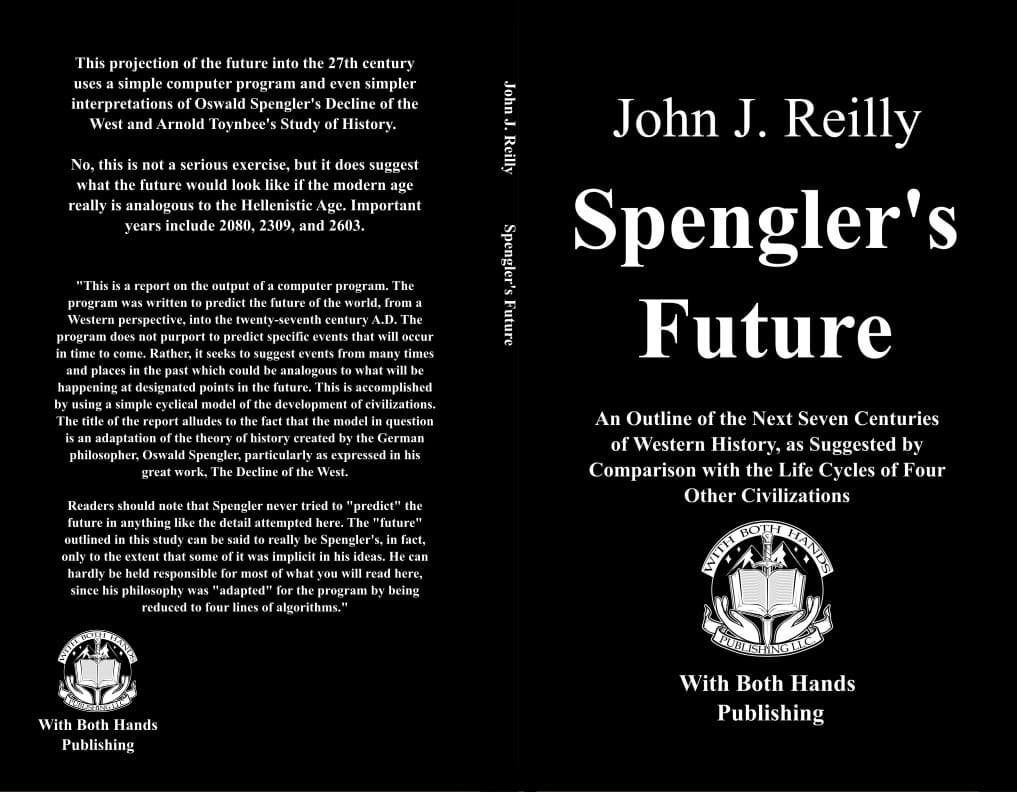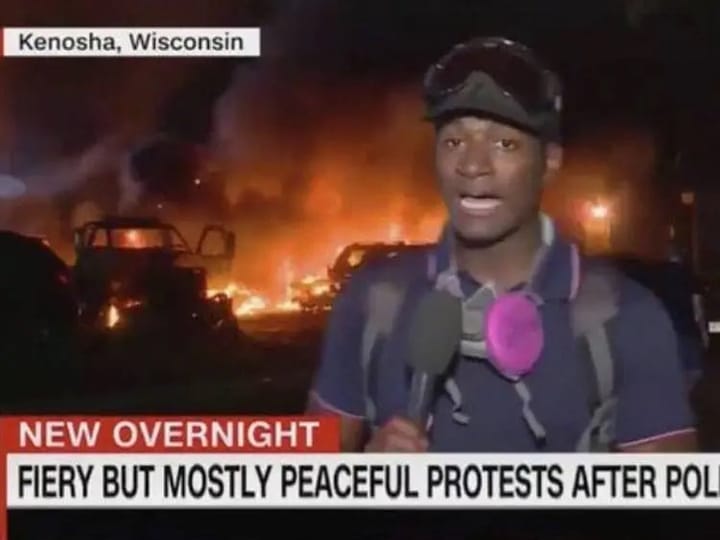The Long View 2009-04-24: Witch Hunts & Purges

Last night on Twitter/X I suggested that John J. Reilly may be the prophet of our times. John died in 2012, but his writings offer us useful concepts for understanding our times based on history.
In this 2009 blog post, John shows us what a modern day purge would be like. A purge is a top-down political phenomenon. John contrasts this with a witch-hunt, which is a more demotic event, driven by the enthusiasm of mobs.
From what I understand, several agencies of the federal government were faced with a knotty legal problem in the immediate aftermath of the inundation of New Orleans. There was a variety of things they had to do in the city, such as the protection of nationally critical infrastructure and the interdiction of drug traffickers, but the violence occasioned by the withdrawal of the local police greatly hampered these efforts. Obviously, the thing to do was to patch together a federal policing force to maintain enough order for the other feds to be about their business. However, the Posse Comitatus Act famously forbids the federal government from acting as a police force of general powers.
Agents of the federal government can act as police in the usual sense of the word only when some specific federal interest is involved and there is a statute to authorize its protection. This is the case when federal officials are threatened, to use an obvious example. More generally, the feds can intervene locally when the civil rights of residents of the United States are violated, or threatened with violation. As the situation in New Orleans decayed, the federal government's lawyers were asked whether the rights of the law-abiding citizens of New Orleans were being violated because of the collapse of order in the city. In other words, would it be legal for federal agents to act as police in parts of New Orleans on the ground they were protecting the rights of bystanders to due process of law?
The lawyers looked at their nails. They glanced at the ceiling. They hummed a little tune. Finally they answered, "Well, we can't say it would necessarily be illegal." That was all the feds needed. Acting under color of law, they began making arrests for rioting and the problem went away, at least where the feds needed to function.
That was the kind of legal opinion at issue in connection with the memos on "enhanced interrogation techniques" recently released by the Obama Administration. The Justice Department is quite capable of producing objective, dispassionate assessments of the state of the law. However, that is not what opinions issued at the time of an emergency are supposed to be. They are advocacy, like the briefs that attorneys write for their clients; in such a situation, the client is the federal government, which needs to get on with the business of governing. Briefs submitted at trial or on appeal must rise to certain standards. They may not mislead the court, and they should at least try to deal with the arguments on the other side. If they do not meet these standards, the lawyer may be sanctioned or even disbarred. If a brief does meet these minimum standards, however, there is no objection to the fact it tries to make a case rather than to arrive at objective truth.
The Bush Administration cultivated too much partisan legal advice in this way, even when there was no emergency. The Bush Department of Justice became for the law what the Cato Institute is for economics: they became the kind of source that produces opinions that are neither completely ridiculous nor altogether credible. However, these objections do not apply to the opinions of the Justice Department produced immediately after the attacks of September 11, 2001. The Justice Department would have been derelict had it erred on the side of caution at that time. In many ways, the Bush Administration's legal reaction to 911 was far more sober than Franklin Roosevelt's Administration attack on Pearl Harbor. This was widely remarked on after 911. That is why the current campaign of "find the criminal" being waged by elements of the Democratic Party is not just ill-advised, but ridiculous.
What we are seeing is an attempt to organize a classic political purge, of the sort usually associated with the one-party states of the 20th century, but which are not quite impossible in a system where multiple parties share power. The Chinese in particular made a science of this. The drill was to select the Criminal, specify the characteristics of his Fellow Travelers, and then redistribute to the orthodox the offices, entitlements, and property of the Fellow Travelers. The Criminal could be a historical figure, but was usually a party member of high standing. He might be attacked because of objections within the party to his policies. On the other hand, the other members of the leadership might simply find his patronage network threatening.
At least in the Chinese context, this was not simply a game for elites. Purges routinely impinged on the lives of ordinary people, even those of the most passive political disposition. Deep purges of the Chinese type have not hitherto been a feature of American politics. That is the interesting question in the American context today: whether the Left (with which I do not equate the Obama Administration, by the way) seriously intends to criminalize a large swathe of what had been acceptable policy differences.
In any case, we should distinguish the purge from the witch hunt. Purges are largely under the control of elites. The classic witch hunt was not; rather the opposite. Inquisitions and their Protestant ecclesiastical analogs might prosecute witches from time to time, but they did not normally conduct open-ended investigations to find witches in the general population. A witch hunt, in contrast, might start when an ordinary civil court discovered that someone had been hexed by a witch. The victim would then identify others whom she (it was "he" about 25% of the time) had hexed, who in turn would accuse others. The process tended to stop when the judges were accused.
It is difficult to replicate the witch-hunt dynamic in an ordinary political context. Certainly it was never a good fit for the McCarthy phenomenon. For one thing, although there never had been witches in the sense the witch hunters intended, there were quite a few people after the Second World War who had been Communists or near enough a few years earlier and who had risen high enough in life to find the association embarrassing. The campaign against them was much more like a purge.
If we are to have purges, then readers will be encouraged to know that navigating purges is a learnable skill. It was important not to denounce the Criminal too early, much less the local Fellow Travelers. Not all purges got off the ground, and not all political controversies resulted in purges. One does not want to gain a reputation as a troublemaker, especially if the potential Criminal becomes instead a model of orthodoxy. Similarly, it was important not to remain enthusiastic about the purge too long. People who visibly enjoy a purge will suffer after it is over. The trick is to stand up and speak at just the right time. Denounce as Fellow Travelers only those whose position is already hopeless. Be helpful in matters of procedure and organization, but never, under any circumstances, offer a policy innovation. Anything you say will eventually be wrong.
Remember above all: these things pass.




Comments ()